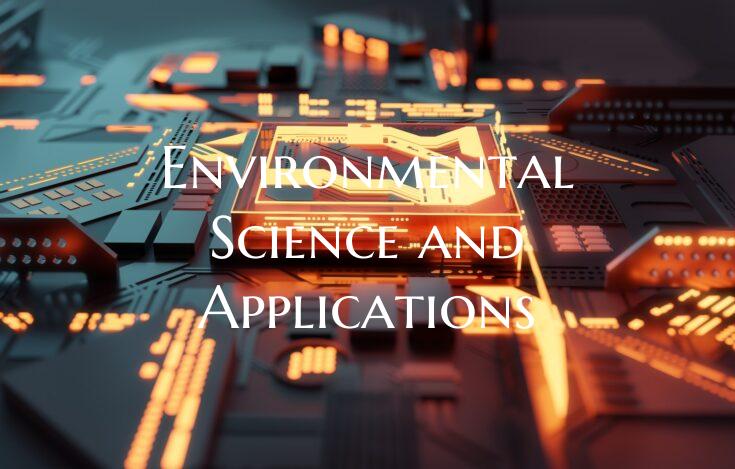Environmental Science and Applications
Environmental Science and Applications: Understanding the Interconnectedness of Nature and Society
Introduction: Environmental science is a multidisciplinary field that explores the intricate relationships between the environment, living organisms, and human activities. By applying scientific principles and methods, environmental scientists seek to understand the complex interactions that shape our planet. This knowledge is crucial for addressing environmental challenges and promoting sustainable practices that can benefit both ecosystems and human societies.
The Importance of Environmental Science: Environmental science plays a crucial role in identifying environmental issues such as pollution, climate change, deforestation, and loss of biodiversity. By studying these phenomena, scientists can assess their impacts and develop strategies to mitigate them. Understanding the natural processes that sustain life on Earth is essential for informed decision-making and effective environmental management.
Applications of Environmental Science: Environmental science has diverse applications across various fields, including ecology, conservation biology, atmospheric science, and environmental policy. Researchers study ecosystems, air and water quality, and energy sources to improve environmental conditions and human well-being. By integrating scientific knowledge with technological innovations, environmental scientists can design sustainable solutions that promote a healthier planet.
Interdisciplinary Collaborations: One of the strengths of environmental science is its interdisciplinary nature. Collaboration among scientists from different fields, such as biology, chemistry, geology, and sociology, is essential for addressing complex environmental challenges. By sharing expertise and perspectives, researchers can develop holistic approaches to environmental issues that consider both natural and human dimensions.
Sustainable Development: Environmental science plays a key role in promoting sustainable development practices that meet current needs without compromising the well-being of future generations. By advocating for resource conservation, waste reduction, and renewable energy utilization, environmental scientists contribute to building a more resilient and equitable society. Sustainable development requires a harmonious balance between human activities and the natural environment, and environmental science provides the knowledge necessary to achieve this balance.
Conclusion: Environmental science and its applications are instrumental in fostering a deeper understanding of our environment and guiding informed decision-making for a sustainable future. By studying the interconnectedness of nature and society, environmental scientists can help address environmental challenges and promote the well-being of both ecosystems and human communities. Embracing the principles of environmental science can lead to a more harmonious relationship between humans and the natural world, ensuring a healthier planet for generations to come.

